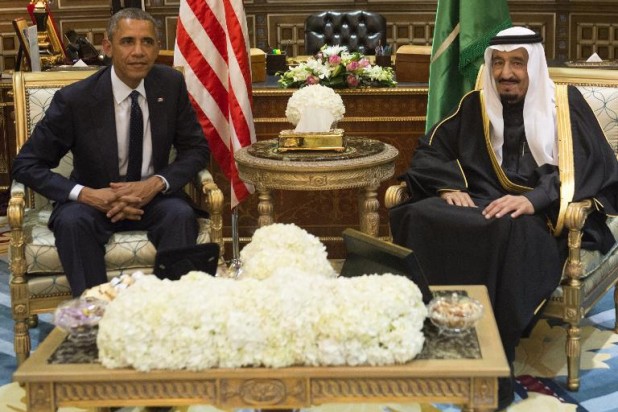(AhlulBayt News Agency) - The ISIS terrorist group is in fact an outcome of some Arab countries' abuse of a discourse atmosphere that followed the Islamic Revolution of Iran. Arab states sought forming a cross-border unofficial army to face the waves of genuine Islamism that swept through West Asia region. Actually, ISIS must be seen an unofficial armed force that was founded by Saudi Arabia and its regional allies and has taken mercenary function by the transregional powers. So, it seems that now the terrorist group is enjoying backup by Riyadh and is being used as an instrument by the international superpowers.
In fact, it can be noted that as long as policy of the regional countries in dealing with ISIS is based on instrumental use of this armed force and so siding with the Saudi Arabian policies, the kingdom will keep being in league with the superpowers to take advantage of the terrorist group. But when ISIS loses the meaningful and defined value as a force at service of the international powers, the Saudi policies in support of the terrorist group will run counter to the superpowers' pathways in dealing with this terrorist force.
Now that the US and Russia, two key transregional players in the Syrian crisis, are getting close to each other. The more this closeness is effective in giving a shape to the political future of Syria, the tighter will become the geographical area of action of ISIS terrorist group in the country. Consequently, the Saudi investment for instrumental use of ISIS in Syria will become more costly. At the end of the road, it is the Saudi kingdom that appears as the loser of the Syrian crisis. We now see that the more the international powers take steps to limit strength of the terrorist group in Syria and in practice the engaged sides become closer to a political deal to end the Syrian conflict, the more ISIS becomes encircled and so the Saudi investment on the terrorist group will become more risky. Because it can be said that ISIS now plays the role of a cross-border guerrilla force for Saudi Arabia and some other Arab States.
On the other side, in Syria the debate on support for Kurds or hostility against them by the regional and international players is a moot point. On the one hand, Turkey voices concerns over the Kurdish forces’ gaining power in the region and on the other hand the US has so far showed a staunch support for the Kurds in Syria. However, it is believed that Ankara's discords with the international powers, particularly with the US, over the Kurds is superficial. It is unlikely that Washington agree to foundation of an independent Kurdish state in the region. Rather, the US is interested to see rise of a defined geographical area with a Sunni government run by the quasi-radical forces in the region. Essentially, according to the US’ views, a fourth player in the heart of West Asia beside the moderate Turkey, the revolutionary Iran, and the conservative and traditionalist Saudi Arabia is necessary to tip the scales of power in favor of the international players. Actually, this is a model meant for the future of the region. As a result, the Kurds can gradually find a place as a key backbone of such a US-favored state in West Asia.
Finally, today Russia and its allies on the one side and the US and its allies on the other side have obtained a kind of balance of power in Syria conflict. This status can be taken as a course to move to de-escalation of violence in the war-torn country. Each of them can make deals with the others according to the win-win principle, and so create grounds for more lasting transformations
/298
source : Alwaght
Monday
26 September 2016
5:23:23 PM
781625

The ISIS terrorist group is in fact an outcome of some Arab countries' abuse of a discourse atmosphere that followed the Islamic Revolution of Iran.
